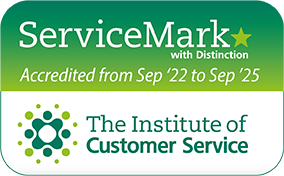Happy Valentine's Day! Some of our fixed-rates are falling for you...
In December's issue of Moneyfacts, Nicholas Morrey, Product Technical Manager at John Charcol, interviewed Martin Yates, Senior Business Development Manager, about the importance of truly understanding a client and their business circumstances when it comes to self-employed mortgages.
If you haven't managed to get your hands on the latest edition, you can read the full article below.
1.) The way lenders treat the affordability for self-employed varies considerably between firms, with some very rigid policies and others being more open to understanding their circumstances. Where does Newbury see itself with regards to underwriting attitudes and the self-employed?
At Newbury Building Society, we believe in openness and flexibility to understand the client’s individual circumstances. For example, we do not credit score, all our mortgages are individually underwritten and we consider unusual properties and circumstances. For self-employed specifically, we can consider net profits on an individual basis. It is about understanding the business and the individual, and showing affordability into the future.
2.) Not all lenders will look at someone who has recently become self-employed. How does Newbury assess someone who has stuck with their own profession but gone from employed to self-employed only a year ago?
The first step we take is to analyse the bigger picture of the client’s circumstances. We do this by asking for evidence of a 3-year employment history, proof the individual has related experience in the stated profession, and confirmation income is at a similar level to that of what was being earned previously. We would also consider one year’s accounts and in some cases, less than that.
3.) Contracting has become more popular since 2008. How does Newbury alter its approach to contractors compared to the standard self-employed or limited company director?
We consider contractors in a very similar way to the self-employed. The core principles are the same; however, providing the applicant has 2 years industry related experience in their field we can consider day one contractors. A minimum of 3 months remaining on their contract at application is needed and we base the income for affordability on their daily contract rate. We assume a five day working week and a 48 working year (to pre-empt holiday and time-off). It is common to use a Limited Company when contracting; however, we do not use limited company accounts.
4.) Income is likely to vary from year to year. If there is a drop from the previous year to the current year some lenders will use just the lowest year’s figures rather than the average of those two years. How does Newbury look to understand why the reduction happened – e.g. for the purchase of new machinery or premises or a vehicle for expansion perhaps?
We look to understand the business in question holistically and analyse its activities over a 3 year period. Each business is different, and as long as we can understand the position it is in we can effectively take a view on any large positive and negative variances.
5.) As ‘open banking’ becomes more prevalent over the next few years, would Newbury consider looking solely at the bank accounts of the self-employed to see net disposable income that is available for mortgage purposes to base affordability on?
Currently, we do not have any plans to do this. When calculating affordability we can consider using undrawn net profit, adjust for lower tax on dividends and allow certain costs to be added back in.
6.) Building societies seem to be held back by the regulators from offering much by way of fixed rates. Given that self-employed applicants that don’t fit standard policy with Newbury are offered a 3-year discounted rate rather than the security of a fixed rate, would Newbury like to see a relaxing of the rues surrounding who can and who cannot offer fixed rates as ‘standard’? This could match the banks’ potentially unfair advantage given the proportion of applicants who are currently seeking fixed rates.
Our funding model is different to that of a bank. We fund the majority of our lending from our savings members and fixed rate mortgages are hedged to protect our savers. It is because of this we are unable to conduct all of our lending on a fixed rate basis. Nevertheless, we have increased our fixed rate allowances over recent years with our regulator; this has allowed us to consider and offer a wider range of products.
If you'd like further information about how Newbury Building Society can help your self-employed clients, read our lending criteria for further information.







